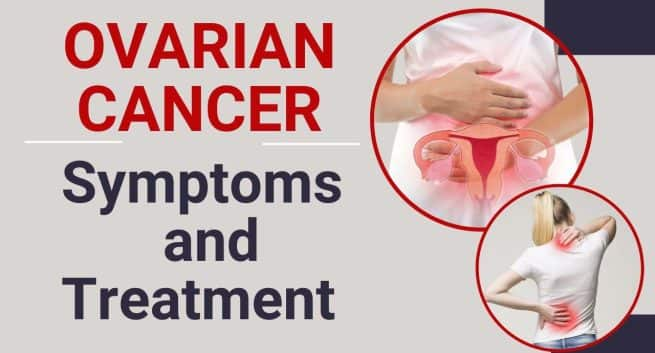
Ovarian Cancer:Ovarian cancer is a growing concern for women. Here are a few risk factors and early signs that women must not ignore and be aware of their bodily changes. We will delve into the details of ovarian cancer, including its definition, common symptoms, and preventive measures.
What is ovarian cancer?
Ovarian cancer is a type of cancer that originates in the ovaries, the female reproductive organs responsible for producing eggs and hormones. It can affect one or both ovaries and, if not detected early, can spread to other parts of the body. It is more common in women after menopause, but that doesn’t change the importance of maintaining excellent health in young females. Ovarian cancer symptoms can be overlooked. These have a silent effect on the body and are frequently diagnosed at a later stage. This emphasizes the need to remain mindful of one’s own body. Because several early symptoms of ovarian cancer may overlap with other prevalent illnesses, it is a silent killer for women. Genetics, environment, and hormones all play a role in the risk factors.
Symptoms
Recognizing the symptoms of ovarian cancer is vital for early detection. It’s important to recognize that these symptoms may be caused by less serious illnesses. However, seeking medical advice becomes necessary if these consistent new symptoms don’t get better with time. In order to improve the prognosis of ovarian cancer, early identification and diagnosis are crucial.
READ RELATED: How Does Cognitive Rehabilitation Work For Alzheimer’s Disease?
Prevention
While ovarian cancer may not be entirely preventable, certain measures can help reduce the risk, such as regular check-ups, keeping an eye on family history, and maintaining a balanced diet rich in fruits, vegetables, and whole grains. Engage in regular physical activity or consider discussing options like removing the fallopian tubes and ovaries with your doctor, especially for high-risk individuals. Genetic Testing If you have a family history of ovarian or breast cancer, genetic testing can help determine your risk.
Treatments for ovarian cancer
The initial stage of ovarian cancer may just require the removal of the malignant tumor and any damaged organs. During the surgery, your surgeon may take samples to check for spread to your lymph nodes or adjacent tissues. Chemotherapy may be helpful for both stage II patients and high-risk stage I patients.
If you are diagnosed with stage II, stage III, or stage IV ovarian cancer, surgery may be performed prior to chemotherapy in order to remove the tumor, both ovaries, damaged organs, and lymph nodes throughout the body. After surgery, the majority of patients will start a personalized chemotherapy program, which may include one or more chemotherapy drugs.
If you are diagnosed with ovarian cancer and would still like to have children, our doctors will discuss your best options to preserve your fertility. If the cancer is at an early stage (stage I or II), one ovary and one fallopian tube may be removed when possible to preserve reproductive functions. In later stages, where the cancer has spread, broader surgery may be necessary.
window.addEventListener(‘load’, (event) => {
$(‘#commentbtn’).on(“click”,function(){
(function(d, s, id) { var js, fjs = d.getElementsByTagName(s)[0]; if (d.getElementById(id)) return; js = d.createElement(s); js.id = id; js.src = “//connect.facebook.net/en_US/sdk.js#xfbml=1&version=v2.3”; fjs.parentNode.insertBefore(js, fjs);}(document, ‘script’, ‘facebook-jssdk’));
$(“.cmntbox”).toggle();
});
});








